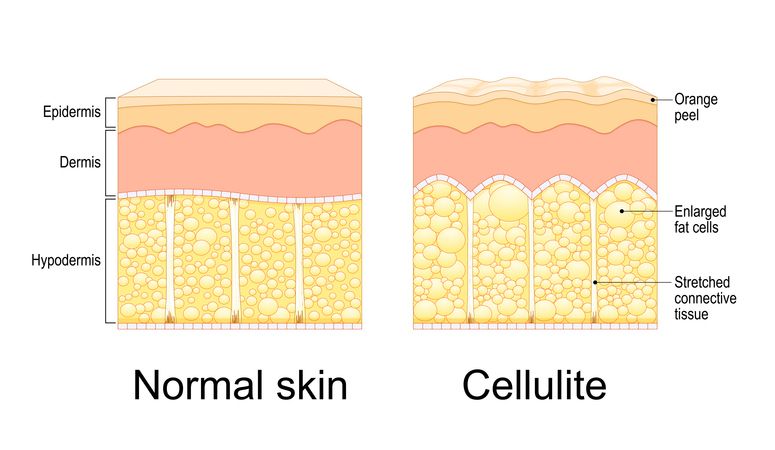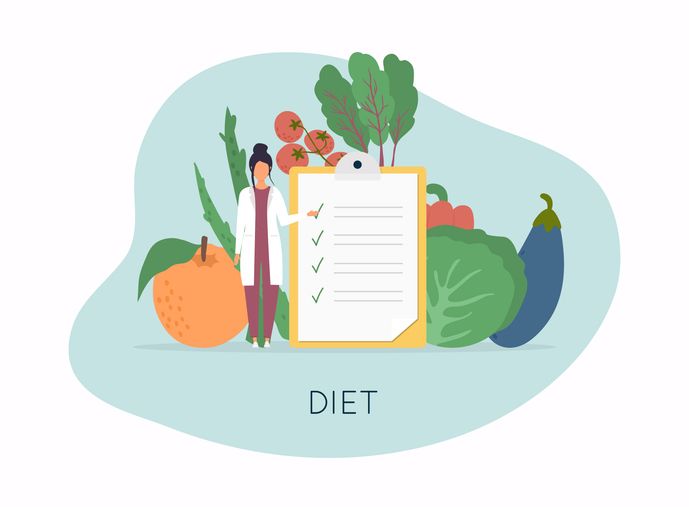
Author: Natalie Ng|Updated: 16 May 2025
A 3-day water fast is often seen as a way to lose weight quickly—but there’s more going on beneath the surface than just a drop in body weight. For many, it’s a method to reset their eating habits, cut down calorie intake, and explore the potential health benefits of water fasting. By drinking only water for 72 hours, your body enters a fasting period that shifts your metabolism. You start to burn fat more efficiently, insulin levels drop, and the body begins to repair old or damaged parts through natural processes. This can lead to short-term weight loss and reduced water weight, along with clearer thinking and better control over blood sugar levels. But while the idea of significant weight loss in just three days is appealing, there are risks. Things like electrolyte imbalance, low blood sugar, mood swings, and changes in systolic blood pressure can all happen, especially without proper medical supervision. If your goal is to burn fat or improve insulin sensitivity, it’s still important to be aware of what your body goes through during a fast like this. Water fasting may have several health benefits, but it’s not a quick fix. The effects depend on your current health, how much weight you want to lose, and what you do after the fast. Keep reading to see what a day water fast really does to your body, what the potential risks look like, and how to do it in a way that supports long-term well-being.

Boosts Cellular Repair and Improves Body Efficiency Through Autophagy

Water fasting for 3 days activates a powerful repair process
When you stop eating and switch to only water, your body begins to break down stored glycogen. After around 24 hours, it enters a deeper fasting state. During this time, it activates a natural repair function called autophagy. This process clears out old or damaged parts of cells, helping the body work more efficiently.
Autophagy supports disease prevention and may help protect against several chronic diseases. It plays a key role in maintaining a healthier internal environment and reducing inflammation. Many people also notice improvements in overall well-being during this phase, including reduced brain fog and better focus.
Improves insulin sensitivity and lowers insulin levels naturally
As your calorie intake drops and insulin levels fall, your body becomes more sensitive to insulin. This improves how your cells use energy and manage blood sugar. That’s why water fasting may be helpful for people with insulin resistance or those trying to improve their blood sugar control.
Better insulin sensitivity means the body can respond more effectively to food after the fast ends. This is especially useful for managing blood sugar levels and reducing risk factors for conditions like type 2 diabetes.
Encourages fat burning and supports weight loss goals
Autophagy helps the body shift from using sugar to burning fat. Once blood sugar stabilizes and glycogen stores run low, your body begins using fat for energy. This supports weight loss and helps reduce body fat, especially during prolonged fasting periods.
This fat-burning phase can be useful for people dealing with obesity found to be linked with chronic conditions such as heart disease or high blood pressure. While early weight changes are often due to water weight, the shift in metabolism helps you burn fat more efficiently over time.

Supports Weight Loss and Resets Metabolic Function

Water fasting leads to noticeable weight loss in the first 72 hours
One of the most immediate effects of a 3-day water fast is weight loss. As your body uses up stored glycogen, it also releases the water that was stored along with it. This leads to rapid weight loss within the first 24 to 48 hours. While this initial drop is mostly water weight, it’s a clear sign that your metabolism is shifting.
After this stage, your body enters ketosis and begins to burn fat for energy. This process supports more sustainable fat loss, especially when paired with a healthy post fast phase.
Improves how your body handles energy and controls calorie intake
During prolonged fasting, your metabolism resets. Your body becomes more efficient at using stored fat and regulates key hunger hormones like ghrelin and leptin. This change helps reduce intense cravings and makes it easier to eat food in smaller portions once your normal diet resumes.
Water fasting may also improve your relationship with food by helping you become more aware of your natural hunger signals. Many people find it easier to stick to a calorie deficit after fasting, which can support long-term weight management.
Helps regulate blood sugar and improve insulin response
As insulin levels fall, your body becomes more responsive to insulin. This helps keep blood sugar levels more stable and lowers the risk of high blood sugar spikes after meals. Water fasting may be especially helpful for those managing insulin resistance or trying to prevent chronic conditions like type 2 diabetes.
Better blood sugar control not only supports weight loss but also protects your energy levels throughout the day, reducing crashes and mood swings tied to poor glucose regulation.
Read More
Book Now to Experience
S6 Body Sculpting Treatment
1 Minute Self-Registration
Date should not be before minimal date

Improves Blood Sugar Control and Insulin Sensitivity

Water fasting may lower blood sugar levels safely
During a 3-day water fast, your body no longer receives any glucose from food intake. This leads to a gradual decrease in blood sugar levels, especially within the first 24 hours. As glycogen stores are depleted and insulin levels fall, your body begins relying on stored fat for energy. This reduces blood sugar fluctuations and helps stabilize glucose levels throughout the fasting period.
These changes are beneficial for people who want to improve insulin sensitivity or reduce their risk of high blood sugar and insulin resistance. Even after the fast ends, many people continue to experience more stable blood sugar patterns.
Helps the body respond better to insulin
Insulin sensitivity improves during fasting because the body isn’t constantly exposed to glucose. With insulin levels lower and more stable, your cells become more efficient at responding to insulin. This can reduce the risk of developing chronic diseases like type 2 diabetes and support long-term blood sugar control.
People who struggle with prediabetes or metabolic health conditions often find that prolonged fasting supports better energy use and reduced cravings. This makes it easier to maintain a normal diet afterward without large spikes in blood sugar.
Offers a break for the pancreas
During prolonged fasting, your pancreas isn’t required to release insulin as often. This rest period may allow it to function more effectively once eating resumes. While more research is still needed, the potential health benefits include a stronger insulin response and reduced strain on glucose regulation systems.
If you're aiming to reduce blood sugar levels and support overall metabolic health, water fasting for 3 days may provide a short-term reset that leads to longer-term improvements—especially when followed by balanced eating and medical supervision.

Enhances Mental Clarity and Cognitive Performance

Water fasting may improve focus after the first 24 hours
While the first day of a water fast can bring fatigue or brain fog, many people notice a clear shift by day two. As your body moves into ketosis and starts using fat-derived ketones for fuel, your brain adjusts too. Ketones provide a stable energy source, which can support better mental clarity and focus.
Many people report feeling more alert, focused, and productive during the later stages of a 3-day water fast. The drop in blood sugar spikes also helps prevent the crashes that often follow meals high in refined carbohydrates.
Supports cognitive function during prolonged fasting
Fasting appears to support brain function through several pathways. Lower blood sugar and improved insulin sensitivity reduce inflammation in the brain, which may support better memory and sharper thinking. Some studies also suggest that autophagy may play a role in protecting neurons and encouraging repair of damaged brain cells.
These combined effects may improve cognitive function in the short term and potentially contribute to long-term brain health, although more research is still needed to confirm these outcomes.
Reduces distractions linked to food and digestion
During a 3-day water fast, your body isn’t spending energy on digestion or processing calorie intake. With fewer distractions from food and less fluctuation in energy levels, your mind may feel clearer. This helps many people feel more present and focused, especially during the second and third days of the fasting period.
If mental clarity is one of your goals, water fasting may offer a temporary boost—though it's important to stop if you notice severe dizziness, disorientation, or confusion. Cognitive benefits should never come at the cost of your overall well-being.
Book Now to Experience
S6 Body Sculpting Treatment
1 Minute Self-Registration
Date should not be before minimal date

Supports Immune Function and Natural Healing Processes

Water fasting activates internal repair linked to immune health
When you stop eating and enter a prolonged fasting state, your body shifts its focus from digestion to internal repair. During a 3-day water fast, this includes clearing out old or damaged cells through autophagy—freeing up resources to maintain healthier cells.
This cellular cleanup process supports immune function by removing components that are no longer working properly. Some research suggests that extended fasting may help the body regenerate parts of the immune system, especially when combined with proper recovery and post-fast nutrition.
May reduce inflammation linked to several chronic diseases
Many chronic conditions—such as heart disease, type 2 diabetes, and high blood pressure—are linked to long-term inflammation. Water fasting may help lower this inflammatory response by reducing blood sugar levels, insulin, and other triggers that stress the body’s systems.
By limiting calorie intake and giving your body time to reset, water fasting may contribute to lower levels of inflammatory markers. This may reduce the risk of several chronic diseases when done with medical supervision and safe refeeding practices.
Encourages healing without interrupting essential nutrients for short periods
Although water fasting limits food intake, short-term fasts like the 72-hour version are often well tolerated if you’re generally healthy. The body is designed to function without food for short periods while still preserving essential vitamins and minerals needed for basic functions.
This natural stress on the body, called hormesis, may help strengthen resilience and promote natural healing responses. Still, those with existing health conditions or low body weight should consult a healthcare professional first, as fasting without essential nutrients can increase health risks.

Resets Eating Habits and Supports Appetite Control

Water fasting may reduce cravings and improve portion control
After 72 hours of water fasting, many people report a noticeable shift in their appetite. Without the constant cycle of eating and snacking, your body has time to regulate hunger hormones like ghrelin and leptin. This helps you feel satisfied with eating smaller portions once your fast ends.
People who complete a 3-day fast often find they are less drawn to highly processed foods or emotional eating patterns. This can help break habits that contribute to overeating and obesity found in those with unbalanced food routines.
Encourages mindful eating and long-term calorie restriction
Once your body adapts to fewer calories during the fasting period, it becomes easier to maintain a healthy calorie intake after the fast ends. Water fasting may support mindful eating by making you more aware of hunger cues and helping you avoid eating out of boredom or habit.
This reset effect can support a more balanced normal diet going forward, especially if you're working toward a consistent calorie deficit for weight loss. It also helps reduce dependence on constant food intake and improves your ability to go longer between meals without feeling fatigued.
Helps people reevaluate food choices post fast
During the post fast phase, you're more likely to crave nutrient-rich foods that support your body’s recovery—like fruits, vegetables, and light broths. Many people also feel more motivated to eat food that supports well-being rather than just satisfying cravings.
This shift can create a long-term change in food preferences, which supports better overall health. Combined with the metabolic reset and insulin sensitivity benefits from fasting, this can lead to more stable body weight and fewer health complications related to poor diet.
Book Now to Experience
S6 Body Sculpting Treatment
1 Minute Self-Registration
Date should not be before minimal date

May Lower Risk Factors for Chronic Health Conditions

Water fasting supports key systems tied to long-term health
A 3-day water fast may reduce several risk factors linked to chronic diseases. By lowering blood sugar levels, improving insulin sensitivity, and promoting fat burning, it supports internal systems that affect conditions like heart disease, type 2 diabetes, and high blood pressure.
Many of these improvements are connected to how fasting affects your metabolism, immune system, and inflammation levels. Even a short period of calorie restriction can help reset how your body processes energy, which is essential in managing and preventing chronic health conditions.
Reduces markers linked to heart disease and high blood pressure
Water fasting may help reduce systolic blood pressure in some people, especially those with mild hypertension. As your body shifts into a fasting state, blood volume and pressure can decrease, reducing the strain on your heart.
Over time, improved insulin levels, reduced blood sugar spikes, and better fat metabolism can lead to a reduced risk of developing heart-related complications. While these benefits require more research for long-term effects, early signs are promising.
Supports healthy weight, which reduces disease risk
Maintaining a lower body weight can significantly reduce your chances of developing several chronic diseases. Water fasting, by creating a calorie deficit and reducing water weight in the short term, may help kickstart significant weight loss goals when followed by healthy post-fast habits.
This benefit is especially important for people with obesity found to be linked to chronic issues like metabolic syndrome, high blood pressure, and insulin resistance. With proper medical supervision, water fasting may be used as part of a structured approach to long-term disease prevention.

Potential Health Risks and Safety Precautions of a 3-Day Water Fast

Risk of blood pressure changes and heart complications
During a 3-day water fast, your systolic blood pressure may drop due to reduced fluid and sodium intake. While this can benefit people with high blood pressure, it can also lead to dizziness, fainting, or orthostatic hypotension—especially if you stand up too quickly.
Some people may also experience irregular heart rhythms if electrolyte levels become too low. This includes shifts in potassium, magnesium, and sodium, which are essential for heart function. If you're on blood pressure medication or have a history of heart disease, fasting without food may put extra strain on your cardiovascular system.
This makes medical supervision essential, especially if you're managing existing health conditions or taking medications that affect heart rate or fluid balance.
Increased risk of electrolyte imbalance and dehydration
Fasting without food reduces your intake of essential nutrients and minerals. Even though you're drinking water, you may still lose important electrolytes like sodium, potassium, magnesium, calcium, and phosphate. These help regulate nerve signals, muscle contractions, and fluid levels.
Without enough of these, you may experience muscle cramps, weakness, fatigue, headaches, or in severe cases, more serious complications like heart rhythm issues or confusion. Symptoms can appear suddenly, especially if your baseline nutrient levels were already low before starting the fast.
This risk is higher if you fast without proper preparation or try to extend the fasting period beyond 72 hours without guidance.
Medical conditions that make water fasting unsafe
While a 3-day water fast may offer several health benefits for some people, it can be dangerous—or even life-threatening—for others with certain medical conditions. If you're living with or recovering from a health issue, fasting without proper nutrition or supervision may worsen symptoms or lead to complications.
Fasting is unsafe for anyone with:
• Type 1 or type 2 diabetes (due to the risk of low blood sugar or insulin shock)
• Eating disorders such as anorexia or bulimia
• Heart conditions, including arrhythmias and chronic heart failure
• Kidney disease, especially when fluid and electrolyte balance is already compromised
• Pregnancy or breastfeeding (due to increased need for nutrients)
• Cancer, especially during treatment or recovery
• Recent surgery or infection, when the body needs essential nutrients to heal
• Uncontrolled high blood pressure
If you’re taking medications that require food—such as blood pressure tablets, antidepressants, insulin, or blood thinners—fasting without eating can change how these drugs affect your body. This can increase side effects or reduce how well the medication works.
Even if you're otherwise healthy, it’s critical to talk to a healthcare professional before starting a prolonged fasting period. Medical supervision helps identify risk factors early and prevents unexpected health complications.
Essential safety precautions before starting a water fast
Before beginning a 3-day water fast, it’s important to take the right steps to protect your health. Fasting puts temporary stress on the body, and while this can lead to several health benefits, it also increases the risk of complications—especially if you're not prepared.
Here’s what to do before and during your fast:
• Get medical clearance from a healthcare professional
Book a full checkup before fasting. This helps rule out any underlying medical conditions and ensures your body can handle a period of calorie restriction. If you’re taking any medications or managing chronic diseases, this step is essential.
• Plan your fasting days when you can rest
Choose a time when you can avoid heavy physical activity or stress. Your energy levels may drop during the fasting period, and rest allows your body to focus on repair and recovery.
• Set up a check-in system
Ask a friend or family member to check in on you daily. This adds a safety layer, especially if you live alone or experience symptoms like dizziness, low blood sugar, or weakness.
• Monitor key health signs
Track your blood pressure, heart rate, and hydration status throughout the fast. If you start to feel lightheaded, extremely fatigued, or notice unusual symptoms, break the fast and seek medical advice.
• Prepare a recovery plan
Make a detailed plan for how you’ll break your fast. Start with light, easily digestible foods like soup, steamed vegetables, or diluted juices to avoid shocking your digestive system.
These steps reduce risk and increase the likelihood of a safe and beneficial fasting experience. Skipping preparation increases the chances of electrolyte imbalance, dehydration, or worsening existing health conditions.
How to break a 3-day water fast safely
After completing a 3-day water fast, your digestive system is in a rested state. Jumping straight back into your normal diet or eating heavy meals can lead to discomfort, nausea, or digestive issues. The post fast phase is just as important as the fast itself—how you reintroduce food directly affects how well your body recovers.
Follow these steps to break your fast gently and safely:
• Start with fluids
In the first hour after your fast, drink warm water or herbal tea. This helps rehydrate your system and gently prepares your stomach to process food again.
• Introduce gentle nourishment
After 2 to 3 hours, you can sip on diluted fruit juices or drink vegetable broth. These provide some essential vitamins and minerals without overloading your system.
• Choose light, low-volume foods
For your first solid meal, go with foods that are easy to digest—steamed vegetables, soft fruits, or light soups. Stick to about ½ cup per serving and chew slowly.
• Avoid heavy meals for at least 24 hours
Stay away from meat, dairy, fried foods, and high-fat meals in the first day after your fast. These can cause bloating or discomfort as your digestive enzymes gradually return to normal function.
• Watch for signs of discomfort
If you feel bloated, nauseated, or lightheaded, pause and give your body more time. Everyone reacts differently after fasting, so it’s important to reintroduce food at your own pace.
A slow and careful return to regular eating helps preserve the benefits of water fasting while minimizing the risk of side effects. It also sets the foundation for longer-term changes in eating habits, calorie intake, and weight management.

Pairing Your 3-Day Water Fast with S6 Body Sculpting Treatment for Better Fat Loss Results
Why combine water fasting with body contouring?
A 3-day water fast can reset your metabolism, lower blood sugar, and trigger fat-burning processes throughout the body. It is an effective way to reduce overall body weight and improve insulin sensitivity. But while fasting helps burn fat, some areas like the belly, thighs, or lower back can still hold onto stubborn fat deposits that are harder to eliminate.
To enhance the fat loss effects of fasting, S6 Body Sculpting Treatment offers a focused and non-invasive solution. This treatment targets fat layers that are not easily reduced through calorie restriction alone. By combining low-energy bio-laser and vacuum suction technology, it supports the body’s natural fat breakdown while also firming and shaping specific areas without surgery, injections, or downtime.
How the treatment works
S6 Body Sculpting Treatment uses low-energy bio-laser technology to reach deep into subcutaneous fat layers. The laser energy encourages fat cells to release stored fatty acids, which are then drained away naturally through the body’s lymphatic system. A vacuum suction massage is used during the treatment to speed up lymphatic drainage and support fat metabolism.
At the same time, the bio-laser stimulates collagen production, which helps firm and tighten the skin. This is especially useful after weight loss, when skin may feel loose or less toned.
Advantages of S6 Body Sculpting Treatment
• Targets stubborn fat in problem areas like the belly, waist, arms, buttocks, thighs, calves, and back
• Non-surgical and non-invasive, with no injections, no medication, and no downtime
• Supports your 3-day water fast by helping reduce fat cells while your metabolism is already activated
• Enhances your body’s natural fat-burning process and reduces reliance on heavy exercise
• Stimulates collagen, helping to firm the skin and prevent sagging after rapid weight or water loss
Safe and suitable for most people
S6 Body Sculpting is generally well tolerated and does not involve skin damage or long recovery periods. It is suitable for people who want to lose fat in specific areas but may not have the time or ability to follow intense workout routines.
Your body is already in fat-burning mode during a 3-day water fast. With S6, you can focus that fat-burning energy more precisely, helping you shape your body while maintaining the benefits of calorie restriction, metabolism reset, and improved insulin sensitivity.
Ready to enhance your results?
Whether you're planning a water fast or already completed one, S6 Body Sculpting Treatment can help you get the most out of your efforts. Book your session today and start shaping the body you’ve been working toward safely, naturally, and without surgery.
Book S6 now to reduce stubborn fat and firm your shape with zero downtime.
New Beauty's S6 Body Sculpting TreatmentBook Now to Experience
S6 Body Sculpting Treatment
1 Minute Self-Registration
Date should not be before minimal date
FAQ
1. Can I do intermittent fasting after completing a 3-day water fast?
Yes, many people transition into intermittent fasting after a 3-day water fast to help maintain the benefits. Intermittent fasting can support weight loss, improve insulin sensitivity, and help regulate blood sugar levels long-term. It also makes it easier to manage calorie intake and avoid sudden overeating once you return to a normal diet. Start with a gentle schedule like 14:10 or 16:8 and monitor how your body responds before extending fasting hours.
2. How much weight can I expect to lose during a 3-day water fast?
Weight loss during a 3-day water fast varies based on your starting body weight, metabolism, and how much water weight your body retains. On average, people lose between 1.5 to 4 kg (3 to 9 pounds), but much of the initial weight is water weight due to glycogen depletion. For lasting results, pair fasting with healthy eating habits and consider treatments like body contouring to target stubborn fat.
3. Is it safe to exercise during a 3-day water fast or after S6 Body Sculpting Treatment?
Light physical activity like walking or stretching is generally safe during a 3-day water fast if you feel well. However, high-intensity workouts are not recommended during prolonged fasting because of lower energy and risk of low blood sugar. After S6 Body Sculpting Treatment, rest is encouraged for the first 24 hours, but normal movement can resume soon after. Strenuous exercise should be delayed until your body fully adjusts.
4. Will water fasting affect my muscle mass?
Short-term fasting may lead to a small amount of muscle loss, especially if protein intake is reduced for too long. However, most muscle breakdown during a 3-day water fast is minimal when the fast is done correctly. The body prioritizes burning fat before muscle tissue. To protect muscle mass after fasting, return to a balanced diet with adequate protein and resume resistance training if part of your routine.
5. Can I combine water fasting with lemon juice or herbal teas?
Pure water is recommended during a strict 3-day water fast, but some people choose to add lemon juice or drink non-caloric herbal teas to help with taste and reduce hunger. A small amount of lemon juice in water is unlikely to interrupt the fasting state significantly, though it may slightly affect insulin levels in sensitive individuals. If your goal is autophagy or fat burning, stick to only water for best results.
Recommended Articles
COPYRIGHT© NEW BEAUTY MANAGEMENT LIMITED 2026. ALL RIGHT RESERVED.




